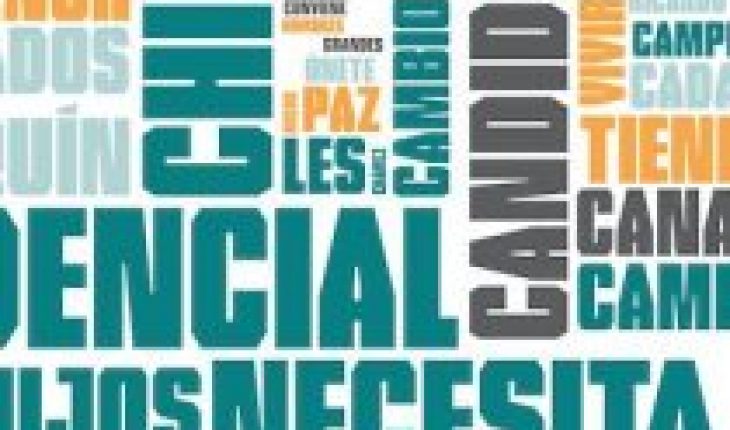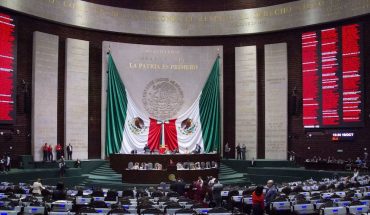Our country has been going through endless events that have made us reflect on life in multiple dimensions. This has deeply shaken people, in their way of living, expressing and relating. It is a fact that we are in a time where social discussion is fundamental in terms of gender, equity, legislation, health, among many other issues.
In the middle of the 2019 social explosion, I still remember a banner raised by a young man that said “please listen to us”. This simple image, which comes to mind again and again, makes me reflect on the background of “knowing how to listen”: to listen, not only is the auditory sense needed, but there must be a disposition and interest in what another person expresses and that is where the dialogue begins.
The demands of the citizenry, given the profound manifestation that we are experiencing, clearly go in the direction of dialogue happening. Estefanía Simón (FORBES, 2014) proposes ten steps to listen to others, among which are to leave time for explanations, dialogue, generate eye contact and find out the purpose behind that contact. Following this logic, apparently, concepts such as empathy, assertiveness or respect, go in the direction of knowing how to listen and, without a doubt, take those opinions, ideas, or “demands” to seek the well-being of people and society.
In the electoral strip of January 4, 2000, Ricardo Lagos reinforces one of the axes of his candidacy, associating “work” with “well-being”. Not only does his account include this approach; in the next election, on January 5, 2006, Sebastián Piñera includes in his story words such as “smile”, “solidarity”, “hope”, “future”, “challenge”, “affection”, “trust”, “freedom” and “a more human Chile”.
These concepts are included again in his 2010 presidential strip.
On December 3, 2013, Michelle Bachelet reaffirms in some way that these issues are very important, highlighting concepts such as “dreams”, “the Chile we want”, “a Chile that moves by the heart”, “hope”, “working together”, “generosity” and “pride”, among other words.
Thus, we can appreciate that, regardless of the bench, well-being, happiness and opportunities are present among the arguments to convince citizens. However, when reviewing the basic analysis of the story (figure 1), expressed by the different candidates in the second round slots, it is possible to measure the lack of the use of words associated with well-being – some are mentioned, such as “love” and “peace”. In this way, finally, we can appreciate that the use of words goes much more in the sense of action and, therefore, of contingent issues to resolve.
Figure 1: One hundred more words repeated in the story of the slots of second rounds 2000 to 2017. (Source: own creation through transcriptions)
It is clear that the narrative of communication in the electoral strips does not focus on the essence of well-being, but rather on promises about solving contingent problems and not of substance. Let’s think for a moment about how beautiful the world is, when we value these issues that make us happy, thanks to someone else being aware of that. If we take some time to reflect and think that each member of society not only values what makes him happy, but practices it both personally and socially, many things would change, as proposed by Theory C, by ensuring that “society maximizes its well-being when each individual acts in favor of the well-being of the members of society, in solidarity, without neglecting their own well-being”.
The invitation is to reflect in the depths regarding human values, such as solidarity (it is defined as “helping others, freely, without pretending to receive anything in return, collaborating in the cause of others” and its anti-value is selfishness) and in all that this entails for our society. If we applied what Theory C says about “acting in favor of others, in solidarity”, we would not only be respecting each other, but also some concepts of life that seem to be harmful would begin to evolve, such as “inequality”, “selfishness”, “impunity” and “discrimination”. Meanwhile, other anti-values contribute more to the failure as a society and individually to achieve what we set ourselves as a life goal. It is time to live a new era as humanity, caring for others without letting go of our own dreams.
On November 22, the Museum of Advertising of the Diego Portales University inaugurated the virtual exhibition “Let’s give it a second round”. The retrospective includes more than forty audiovisual pieces from the last five second-round television slots (2000-2017); two conversations, which analyze the discourse and the great absent themes and a series of columns, prepared by teachers of the School of Advertising, which will be disseminated in The Counter and that they will analyse various aspects of these important historical documents.
The content expressed in this opinion column is the sole responsibility of its author, and does not necessarily reflect the editorial line or position of El Mostrador.





